Overview of the state of Research and Development and government policy in this field.
Session: 15th Riigikogu, 3rd sitting, plenary session
Date: 2024-01-23 12:03
Participating Politicians:
Total Speeches: 97
Membership: 15
Agenda Duration: 1h 49m
AI Summaries: 97/97 Speeches (100.0%)
Analysis: Structured Analysis
Politicians Speaking Time
Politicians
Analysis
Summary
The Riigikogu debate centered on Prime Minister Kaja Kallas’s overview of the state of research and development (R&D) and the government’s policy in that sector. The Prime Minister stressed the necessity of transitioning toward a knowledge-based economy, citing the changed security and economic environment and the conclusion of the era of production based on favorable input costs. Kallas reaffirmed the government's commitment to the goal of allocating 3% of GDP to R&D funding, noting that the state budget allocated 409 million euros to science and innovation this year—an increase of 23 million euros compared to last year. Private sector investments in R&D grew to 361 million euros, which is a positive sign. The Prime Minister also highlighted Estonia's rise to 16th place in the Global Innovation Index. During the debate, concerns were raised regarding the pipeline of young scientists, the academic working environment, and the fragmentation of research funding across various ministries. Representatives of the parliamentary factions addressed the broader cultural role of science, the stability of funding, the reduction of bureaucracy, and the impact of the education system's underfunding on R&D, particularly in the context of the teachers' strike. Several MPs also criticized the linkage of research funding to international trends, which may not always align with Estonia's specific needs.
Decisions Made 1
The Riigikogu voted in favor of the Estonian Reform Party faction's proposal to extend today's sitting until the agenda is exhausted, but no later than 2:00 PM (51 votes in favor, 7 against).
Aseesimees Toomas Kivimägi
AI Summary
The first item on the agenda is the Prime Minister’s overview of the state of research and development and the government’s policy in this field, which will be followed by a presentation lasting up to 20 minutes, then questions (one per person), and open discussions directed at the parliamentary factions.
Peaminister Kaja Kallas
AI Summary
Prime Minister Kaja Kallas confirmed that Estonia must transition into a knowledge-based society, boosting research and development expenditure to 3% of GDP and strengthening innovation with the involvement of the private sector, in order to emerge victorious from crises and maintain a competitive economy.
Aseesimees Toomas Kivimägi
AI Summary
He/She thanks the Prime Minister, noting that the members of the Riigikogu have numerous questions, and Tõnis Lukas will open the discussion.

Tõnis Lukas
Profiling Isamaa fraktsioonAI Summary
He notes that the decline in population necessitates considering controlled immigration, or immigration generally, but creating an immigration pump for low-skilled jobs runs counter to Estonia's interests. This is because the state wants to attract talent to research institutions and universities. At the same time, he questions how easy it would be to recruit foreign talent here and from which regions they should be sought, considering security and the political situation.
Peaminister Kaja Kallas
AI Summary
Prime Minister Kaja Kallas noted that Russia threatens NATO security, and that Estonia has been open to foreign students, whose numbers have decreased in recent years, but universities maintain their autonomy and they do take foreign students into account.
Aseesimees Toomas Kivimägi
AI Summary
At the beginning of the address, Igor Taro is asked to come here.
Igor Taro
AI Summary
Igor Taro thanks the esteemed Chair and the Prime Minister, noting that the presentation gives the impression of the importance of research and development funding and an agreement on how to move forward, but he asks why state budget deficits are being solved at the expense of research money, especially in connection with teachers' salaries.
Peaminister Kaja Kallas
AI Summary
Prime Minister Kaja Kallas stated that the Ministry of Education has what are known as carry-over funds that are rolled over from year to year and remain unused, and if there is an acute need, that money must be located now; science funding is not being cut—on the contrary, 23 million was added this year.
Aseesimees Toomas Kivimägi
AI Summary
The request is simple: Signe Kivi, please.

Signe Kivi
Profiling Eesti Reformierakonna fraktsioonAI Summary
Signe Kivi thanks the director and the prime minister for the thorough presentation and asks which research and development fields have brought success to Estonia, and where the next potential for society and the economy is seen.
Peaminister Kaja Kallas
AI Summary
Prime Minister Kaja Kallas stated that the Research and Development Council, working together with scientists and businesses, has selected the directions for the five fields with the greatest potential. She mentioned biotechnologies, autonomous vehicles, personalized medicine, and biomedicine among these, and promised to provide the full list later as references.
Aseesimees Toomas Kivimägi
AI Summary
No worries, there are many questions, and we will definitely return to that point again. Urmas Kruuse, please.

Urmas Kruuse
Profiling Eesti Reformierakonna fraktsioonAI Summary
Urmas Kruuse highlighted that the cross-ministerial research program, due to its centralized decision-making structure, might neglect focused areas that are particularly important to him—namely, agriculture and food production.
Peaminister Kaja Kallas
AI Summary
Prime Minister Kallas stated that, in cooperation with the Research and Development Council, ETAG will be adopted as a compromise. ETAG will evaluate projects to increase the capacity of ministries, ensure the quality of their work, and maximize the resulting benefits for society and the economy. She added that the system requires fine-tuning during implementation and will be modified if necessary.
Aseesimees Toomas Kivimägi
AI Summary
Vice-Chairman Toomas Kivimägi invites Andres Sutt to the stage.
Andres Sutt
AI Summary
Andres Sutt emphasized the importance of sharing success stories, fostering corporate innovation and risk-taking, and the need to ensure a smooth transition from science to business, as well as restoring the public sector's willingness to take risks.
Peaminister Kaja Kallas
AI Summary
Prime Minister Kaja Kallas emphasizes that success comes from taking risks and experimenting, and that failure should not be publicly condemned; instead, we must learn from it. However, balance in the use of taxpayer money is also important.
Aseesimees Toomas Kivimägi
AI Summary
Deputy Chairman Toomas Kivimägi invites Urve Tiidus to the stage.

Urve Tiidus
Profiling Eesti Reformierakonna fraktsioonAI Summary
Urve Tiidus asks the Prime Minister whether Estonian scientists are engaged in sufficient international cooperation and which countries they collaborate with most successfully.
Peaminister Kaja Kallas
AI Summary
Prime Minister Kaja Kallas stated that Estonian scientists collaborate extensively both within Europe and internationally, and that in the context of the Horizon 2020 program, Estonia is one of the most successful countries, demonstrating exceptional success in securing funding and fostering cooperation, primarily with the Nordic countries.
Aseesimees Toomas Kivimägi
AI Summary
Deputy Chairman Toomas Kivimägi submitted the request from Vadim Belobrovtsev.

Vadim Belobrovtsev
Profiling Eesti Keskerakonna fraktsioonAI Summary
Vadim Belobrovtsev asks how Estonia will manage to spend 3% of its GDP on research and development by 2035, given that similar ambitious goals have been set in the past, and promises regarding teachers' salaries—which were supposed to reach 120% of the Estonian average—have not been fulfilled and aren't even visible on the horizon in the near future.
Peaminister Kaja Kallas
AI Summary
Prime Minister Kaja Kallas stressed that Estonia must invest about 1% of its GDP into research and development, with the majority of that funding coming from the private sector, as the entrepreneurs' 2% club expands and reporting needs to be improved. However, the state’s primary role is in establishing a network so that innovation and science can strengthen our competitiveness.
Aseesimees Toomas Kivimägi
AI Summary
Vice-Chairman Toomas Kivimägi calls upon Riina Solman to speak.

Riina Solman
Profiling Fraktsiooni mittekuuluvad Riigikogu liikmedAI Summary
Riina Solman expresses concern over the loss of jobs in Ida-Virumaa and the failure of the Just Transition Fund, and asks whether the government is attempting to seek derogations for the shale oil chemistry sector in order to raise the region's industrial level and avoid a shift towards the creative economy.
Peaminister Kaja Kallas
AI Summary
The purpose of the Just Transition Fund is to make the transition away from fossil fuels as smooth and painless as possible by bringing investments and new jobs to Ida-Virumaa and other regions—for example, in a magnet factory—and by accelerating the flow of money into the economy, even given the current complicated international situation.
Aseesimees Toomas Kivimägi
AI Summary
Jaak Valge was called to the stage.

Jaak Valge
Profiling Fraktsiooni mittekuuluvad Riigikogu liikmedAI Summary
Jaak Valge notes that productivity has fallen despite increased research and development and longer working hours, and asks whether this stems from the economy shifting towards cheaper and simpler production due to mass migration.
Peaminister Kaja Kallas
AI Summary
Kaja Kallas said that there was nothing.
Aseesimees Toomas Kivimägi
AI Summary
Deputy Chairman Toomas Kivimägi called upon Peeter Tali to speak.
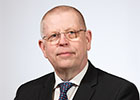
Peeter Tali
Profiling Fraktsiooni mittekuuluvad Riigikogu liikmedAI Summary
Peeter Tali stresses that the innovative and non-standard solutions coming out of the Estonian space and defense industry need to be integrated into the inventory of the defense forces, especially the ground forces, and he raises the question of how Estonia can manage the transition from the 19th century to the 21st century.
Peaminister Kaja Kallas
AI Summary
Prime Minister Kaja Kallas said that the state must use defense industry solutions as a reference point. Innovation is increasingly being valued in public procurements, and through cooperation, the defense industry must be supported while simultaneously taking on the innovation risk.
Aseesimees Toomas Kivimägi
AI Summary
The speaker invites Anti Poolamets to come up and speak.

Anti Poolamets
Profiling Eesti Konservatiivse Rahvaerakonna fraktsioonAI Summary
Anti Poolamets refers to the concern raised by the Security Police regarding the rapid growth of the Islamic community and the mass education of students from Arab countries, which could turn Estonian universities English-speaking and marginalize the Estonian language. He then asks how this is related to the concern over anglicization, and why we should be educating anyone from Arab countries on a mass scale in the first place.
Peaminister Kaja Kallas
AI Summary
Prime Minister Kallas stressed that evidence-based policy must be based on data, pointing out that the share of foreign students in Estonian universities is below 10% and that the graduation rate for students from third countries is lower than that of local students. However, she noted that the real issue is integration into Estonian society, which needs to be addressed.
Aseesimees Toomas Kivimägi
AI Summary
Deputy Chairman Toomas Kivimägi invites Margit Sutrop to speak.

Margit Sutrop
Profiling Eesti Reformierakonna fraktsioonAI Summary
Margit Sutrop thanks [the government] on behalf of the universities and for upholding the 1% research agreement. However, she raises a serious concern regarding the Ministry of Economic Affairs and Communications' (MKM) plan to establish a state applied research center via Metrosert. This initiative would duplicate existing efforts and create competition for scarce human resources and funding among current universities and research institutions. She asks how this kind of competition and the resulting drain of researchers from universities can be avoided.
Peaminister Kaja Kallas
AI Summary
Prime Minister Kaja Kallas stated that the applied research center is crucial for businesses and serves as a complement to the fundamental research conducted by universities. Although universities have expressed concern, she believes that these two entities can be mutually reinforcing, and the center's work will focus on niche areas with strong economic potential.
Aseesimees Toomas Kivimägi
AI Summary
Deputy Speaker Toomas Kivimägi asked Aleksei Jevgrafov to come forward.
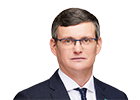
Aleksei Jevgrafov
Profiling Fraktsiooni mittekuuluvad Riigikogu liikmedAI Summary
He stressed that universities play a crucial role in research and development, and their strong, sustained presence in the counties fosters regional development. He also requested an action plan to further enhance their involvement and role within the counties.
Peaminister Kaja Kallas
AI Summary
Prime Minister Kaja Kallas said that regional colleges ensure coverage across various fields and the availability of higher education in the regions, but currently there is no information regarding their expansion, and the topic has not been discussed.
Aseesimees Toomas Kivimägi
AI Summary
Vice-Chairman Toomas Kivimägi called Eero Merilind to the floor.

Eero Merilind
Profiling Fraktsiooni mittekuuluvad Riigikogu liikmedAI Summary
He thanked the chair of the session and the Prime Minister, highlighted the establishment of a pharmaceutical plant in Estonia, and asked how to encourage investment and the clustering of science-intensive companies in the country.
Peaminister Kaja Kallas
AI Summary
Prime Minister Kaja Kallas said that it is important for Estonia to create a good and competitive business environment, which is being developed through expansion, opening doors for entrepreneurs, finding export partners both in Europe and outside of it, and supporting applied research so that we have people here who are skilled enough to do these things.
Aseesimees Toomas Kivimägi
AI Summary
The address is a brief request to invite Mart Maastik to speak.

Mart Maastik
Profiling Fraktsiooni mittekuuluvad Riigikogu liikmedAI Summary
Mart Maastik criticizes that while the prime minister talks about change and the country's forward-thinking nature, the reality is a demographic collapse, a shrinking taxpayer base, businesses being forced to close due to taxation, and a failure to value teachers.
Peaminister Kaja Kallas
AI Summary
Prime Minister Kallas stated that Estonia’s competitive advantage is its low tax burden and simple tax system, but the main source for the economy’s successful future is research and development and innovation, because we are moving toward a third model—smart jobs and technology—and the crisis creates an opportunity to make the necessary structural changes.
Aseesimees Toomas Kivimägi
AI Summary
Deputy Speaker Toomas Kivimägi invited Mario Kadastik to the stage.
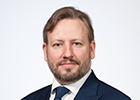
Mario Kadastik
Profiling Fraktsiooni mittekuuluvad Riigikogu liikmedAI Summary
Speaking about the structural reforms of the research system, he/she highlights the issues surrounding the balance between long-term and short-term funding, noting that core funding accounts for approximately 16%, which is allocated to the maintenance of institutions. Furthermore, he/she stresses the necessity of maintaining long-term, sustainable research projects within international cooperation to prevent the disappearance of entire disciplines and schools of thought caused by the sudden termination of ad-hoc projects.
Peaminister Kaja Kallas
AI Summary
Prime Minister Kaja Kallas said that although core funding has increased and money has been allocated, it often does not reach the scientists at the universities, and the solution lies in the university management exercising greater accountability and stronger internal controls so that the money finally reaches the researchers.
Aseesimees Toomas Kivimägi
AI Summary
Vice-Chairman Toomas Kivimägi called Liina Kersna.

Liina Kersna
Profiling Eesti Reformierakonna fraktsioonAI Summary
Liina Kersna emphasizes that when discussing research and development, the focus is primarily on the economy and innovation, and she asks what role is envisioned for the development of the social sciences and humanities.
Peaminister Kaja Kallas
AI Summary
Kaja Kallas emphasized that research into Estonian culture, history, and the field of science and development must be considered just as important as economic innovation, and that funding for higher education institutions must be increased so that the small country can independently develop its own science and identity.
Aseesimees Toomas Kivimägi
AI Summary
Deputy Speaker Toomas Kivimägi called upon Maria Jufereva-Skuratovski to speak.

Maria Jufereva-Skuratovski
Profiling Fraktsiooni mittekuuluvad Riigikogu liikmedAI Summary
He/She asks what causes the lack of motivation among young people to pursue research—is it the salary, the career path, or something else entirely.
Peaminister Kaja Kallas
AI Summary
Prime Minister Kaja Kallas said the reason is not money, but reconciling work and rest time, the heavy workload young scientists face alongside their studies, and the lack of career opportunities. She added that cooperation with companies must be increased and science needs to be made sexier for young people, a necessity highlighted by Tallinn University of Technology's step in raising tuition fees.
Aseesimees Toomas Kivimägi
AI Summary
Deputy Chairman Toomas Kivimägi said that it was perfectly suitable, and then called upon Varro Vooglaid.

Varro Vooglaid
Profiling Fraktsiooni mittekuuluvad Riigikogu liikmedAI Summary
Varro Vooglaid questions what the claim that the tax burden in Estonia is 33% truly signifies. He then highlights calculations showing that for a 2000 euro salary, the employer's total cost is approximately 3469 euros, and taxes constitute 42.3% of the payroll fund. Moreover, the addition of VAT and excise duties could potentially push the tax burden up to 60–70%.
Peaminister Kaja Kallas
AI Summary
Estonia's tax burden is around 33.8% of GDP, which indicates a very lean state. Through this system, public services receive funding covering only about 40–41% of their cost, a level that is lower than both the European average and the Nordic countries.
Aseesimees Toomas Kivimägi
AI Summary
Deputy Speaker Toomas Kivimägi called upon Tanel Tein to speak.
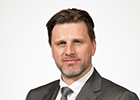
Tanel Tein
Profiling Fraktsiooni mittekuuluvad Riigikogu liikmedAI Summary
Tanel Tein brought up the growing involvement of the private sector in science funding and questioned whether the state could send a similar message to encourage private sector participation in other areas, such as culture and sports.
Peaminister Kaja Kallas
AI Summary
Prime Minister Kaja Kallas said that culture could be strengthened by the private sector, and that this is welcome. However, funding for research and development must not be tied to taxpayer funds or percentage-based schemes, and the state should set an example. Furthermore, the private sector must be offered ways to contribute that go beyond mere tax incentives.
Aseesimees Toomas Kivimägi
AI Summary
This is a brief address to Evelin Poolamets, during which a request is made.

Evelin Poolamets
Profiling Fraktsiooni mittekuuluvad Riigikogu liikmedAI Summary
Evelin Poolamets thanks the chair of the session and the prime minister and asks for clarification regarding the size of the public sector innovation fund established last year and what activities it has already supported.
Peaminister Kaja Kallas
AI Summary
Prime Minister Kaja Kallas stated that the innovation fund, launched in 2023, is designed to ensure that the public sector, together with scientists and entrepreneurs, seeks innovative solutions and tests them in real-life scenarios. The fund prioritizes solutions that benefit both the public and private sectors. Examples of projects developed and tested this year include the detection of prohibited items in prisons, the development and testing of environmentally friendly asphalt pavement, experimental development for assessing the structural condition of bridges, the development of a smart buoy network, and a signing robot that translates ordinary speech into sign language.
Aseesimees Toomas Kivimägi
AI Summary
Valdo Randpere is invited to speak.

Valdo Randpere
Profiling Eesti Reformierakonna fraktsioonAI Summary
Valdo Randpere asks where the money has disappeared from the Estonian education system since the implementation of free higher education in 2011–2012, whether this change has improved overall funding, and whether any of the world's top 30 universities offer free higher education, or if, on the contrary, those universities are very expensive but provide scholarships.
Peaminister Kaja Kallas
AI Summary
Prime Minister Kaja Kallas stated that critics of universities trace the start of the problems back to when higher education became tuition-free. She noted that this has been a point of contention in recent years, especially since the world's top universities are primarily located in the United States and Great Britain, where higher education is not free.
Aseesimees Toomas Kivimägi
AI Summary
This is a brief, polite request to invite Rain Epler to speak.

Rain Epler
Profiling Fraktsiooni mittekuuluvad Riigikogu liikmedAI Summary
Rain Epler asked the prime minister how to assess the 33.8% tax burden as its 'sexiness zero point,' and what should be said in December – whether, against the backdrop of Estonia's economic recession, taxes make us sexier or less sexy.
Peaminister Kaja Kallas
AI Summary
Everyone assesses the situation in their own way, and that is each person's personal business.
Aseesimees Toomas Kivimägi
AI Summary
Vice-Chairman Toomas Kivimägi calls upon Andres Metsoja to speak.
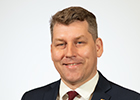
Andres Metsoja
Profiling Isamaa fraktsioonAI Summary
According to Metsoja, the problem runs much deeper than a mere lack of funds, and while over 6% of GDP could be spent on education, the state must instead instill confidence in entrepreneurs to invest in innovation across agriculture, forestry, phosphorite, and oil shale, thereby increasing Estonia’s national wealth and the prosperity of its people, rather than settling for superficial innovation such as a pulp mill or the construction of a wooden building in Tallinn.
Peaminister Kaja Kallas
AI Summary
Prime Minister Kaja Kallas stressed that innovation must serve as the engine for the entire economy. During crises, structural changes are necessary, particularly in the timber sector, where the loss of cheap resources compels a move toward higher added value. The state and businesses must collaborate, utilizing the 'innovation ladder' and the companies' own evaluations to reach the highest levels.
Aseesimees Toomas Kivimägi
AI Summary
Vice-Chairman Toomas Kivimägi calls Priit Sibul to the stage.

Priit Sibul
Profiling Isamaa fraktsioonAI Summary
Isamaa advocates for the free availability of Estonian-language higher education, and Priit Sibul asks what the public sector can do during a difficult economic period so that development activities do not decrease but instead grow, and what proportion of the transition fund resources will be directed towards stimulating innovation and development activities to attract private investors.
Peaminister Kaja Kallas
AI Summary
Prime Minister Kaja Kallas said that she currently cannot provide specific figures and can submit in writing how much of the just transition funding will go toward innovation, but generally, an innovation component should be present.
Aseesimees Toomas Kivimägi
AI Summary
My sincere thanks to the esteemed Prime Minister. We shall now open the debate, and on behalf of the Isamaa faction, I invite Tõnis Lukas to the Riigikogu rostrum.
Aseesimees Toomas Kivimägi
AI Summary
Deputy Speaker Toomas Kivimägi asked for three additional minutes.

Tõnis Lukas
Profiling Isamaa fraktsioonAI Summary
Tõnis Lukas noted that the 40:40:20 distribution of Estonia's 1% GDP science funding has diminished the prospects for basic research and young scientists. He called for a greater emphasis on the function of science, sustainable university funding, and cooperation with Finland, Latvia, and Lithuania in creating legislation and a regional European Union science base.
Aseesimees Toomas Kivimägi
AI Summary
Vice-Speaker Toomas Kivimägi said it was time to act.

Tõnis Lukas
Profiling Isamaa fraktsioonAI Summary
Overall, the desire was expressed that we would be able to apply for funding from that source going forward.
Aseesimees Toomas Kivimägi
AI Summary
Irja Lutsar, on behalf of the Eesti 200 faction, requested three additional minutes.
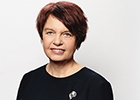
Irja Lutsar
Profiling Eesti 200 fraktsioonAI Summary
Irja Lutsar emphasizes that Estonia, as a small country, can only stand out in global competition through science and innovation. Therefore, we need long-term core funding, a reduction in bureaucracy, incentives for young scientists to remain in Estonia, and science funding of at least 1% of GDP, because the country can only withstand crises and continue to develop with the support of knowledge.
Aseesimees Toomas Kivimägi
AI Summary
Toomas Kivimägi offered his thanks and stated that Jaak Valge, on behalf of the EKRE faction, was requesting three minutes of additional time.

Jaak Valge
Profiling Fraktsiooni mittekuuluvad Riigikogu liikmedAI Summary
Jaak Valge notes that although funding for research and development (R&D) has increased, it does not remain sufficiently connected to Estonia’s economic needs. Furthermore, he states that it is necessary to de-ideologize the humanities and social sciences, reduce dependence on international evaluations and the 'cult of publication,' increase research conducted in the Estonian language, and align the natural sciences with the needs of Estonian society, all while reducing bureaucracy and improving the efficiency of doctoral studies.
Aseesimees Toomas Kivimägi
AI Summary
The address opens with profound gratitude expressed to the esteemed presenter, and it is noted that Margit Sutrop is representing the Reform Party faction.

Margit Sutrop
Profiling Eesti Reformierakonna fraktsioonAI Summary
Margit Sutrop emphasized that Estonian science is internationally competitive and strong in the fields of medicine, genetics, biology, ecology, and physics, and its citation impact is world-class. However, she drew attention to the aging academic staff and the funding bottlenecks in the social and economic sciences. She called for increasing investments, utilizing artificial intelligence, and establishing an Estonian AI center of excellence to improve teachers' working conditions and boost the competitiveness of both science and the economy.
Aseesimees Toomas Kivimägi
AI Summary
Deputy Speaker Toomas Kivimägi asks for three minutes to be added.

Margit Sutrop
Profiling Eesti Reformierakonna fraktsioonAI Summary
Margit Sutrop emphasizes that the strength of Estonian science depends on cultivating academic succession, ensuring the actual growth of research and development funding (including 1% of GDP), and streamlining the network of research institutions, the organization of innovation, relevant legislation, and adherence to ethical standards.
Aseesimees Toomas Kivimägi
AI Summary
Deputy Chairman Toomas Kivimägi expresses his thanks and announces that the time has come.

Margit Sutrop
Profiling Eesti Reformierakonna fraktsioonAI Summary
Margit Sutrop emphasized that the role of the ethics committees must be agreed upon, and this provided the necessary support for both us and the Minister of Education and Research to bring this draft bill before the Riigikogu.
Aseesimees Toomas Kivimägi
AI Summary
The speech included thanks to colleagues, a remark that the final sentence was long but substantive, and a request from Anastassia Kovalenko-Kõlvart for three extra minutes on behalf of the faction.

Anastassia Kovalenko-Kõlvart
Profiling Eesti Keskerakonna fraktsioonAI Summary
To ensure Estonia remains competitive in the knowledge-based economy, it is necessary to invest in education and science, raise teachers' salaries to 120% of the Estonian average, guarantee higher education funding of at least 1.5% of GDP, and ensure total funding for research and development reaches 3% (2% from the private sector, 1% from the state). Furthermore, a cross-party agreement must be established so that these areas are treated not as political issues, but as national priorities.
Aseesimees Toomas Kivimägi
AI Summary
Toomas Kivimägi concluded the consideration of the agenda item, thanked the Prime Minister and his colleagues, and announced that the Reform Party faction had submitted a proposal to extend today's sitting until the agenda is exhausted, but no later than 2 PM, and that the vote on this proposal is currently underway.
Aseesimees Toomas Kivimägi
AI Summary
The proposal was adopted with 51 votes in favor, 7 against, and 0 abstentions. Today's session is therefore extended until the agenda is exhausted, but no later than 14:00.